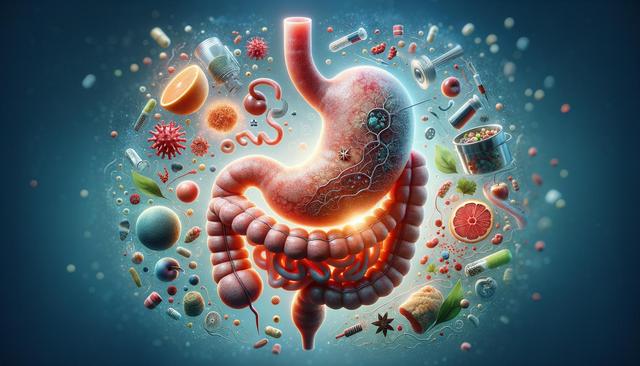What Is Stomach Cancer?
Stomach cancer refers to the growth of malignant cells in the stomach lining. It is part of a broader category of cancers that affect the gastrointestinal tract. Although its incidence has declined in many regions due to improved food storage and hygiene practices, it remains a significant health concern worldwide. The disease typically develops over several years and may not present noticeable symptoms in its early stages, which can delay diagnosis and treatment.
There are different types of stomach cancer, with adenocarcinoma being the most common. This type begins in the mucus-producing cells that line the stomach. Other less common forms include lymphoma, gastrointestinal stromal tumors (GIST), and carcinoid tumors. Understanding the specific type is essential for determining the most appropriate treatment strategy. Due to the complexity of stomach cancer and its progression, medical professionals often rely on a combination of imaging, endoscopy, and biopsy for accurate diagnosis.
Causes and Risk Factors
Stomach cancer is influenced by various factors, some of which are modifiable while others are not. One of the most significant known risk factors is infection with Helicobacter pylori (H. pylori), a bacterium that can cause chronic inflammation in the stomach lining. Over time, this inflammation can lead to changes in the cells and increase the risk of cancer development.
Other contributing factors include:
- Diet high in smoked, salted, or pickled foods
- Smoking and heavy alcohol consumption
- Family history of stomach cancer
- Chronic gastritis or pernicious anemia
- Previous stomach surgery or polyps
Age and gender also play a role, with the disease being more common in older adults and men. While not all risk factors can be eliminated, lifestyle changes and regular medical checkups can help in reducing the likelihood of developing stomach cancer.
Recognizing the Symptoms
One of the challenges in diagnosing stomach cancer early is the non-specific nature of its symptoms. Initial signs may resemble common digestive issues, which can lead individuals to overlook them or attribute them to less serious conditions. However, as the cancer progresses, symptoms typically become more pronounced and concerning.
Common symptoms include:
- Persistent indigestion or heartburn
- Feeling full after eating small amounts
- Unexplained weight loss
- Nausea or vomiting, sometimes with blood
- Fatigue and weakness
- Stomach pain, especially after meals
Anyone experiencing these symptoms for an extended period should consult a healthcare provider. Early detection significantly improves the chances of successful treatment, highlighting the importance of not ignoring even mild but persistent digestive complaints.
Diagnosis and Treatment Options
Diagnosing stomach cancer involves a series of tests that help determine the location, size, and stage of the tumor. The process often begins with a physical examination and review of the patient’s medical history. Diagnostic tools commonly used include:
- Upper endoscopy to view the inside of the stomach
- Biopsy to analyze tissue samples
- CT scans and MRIs for detailed imaging
- Blood tests to check for anemia or tumor markers
Once diagnosed, treatment depends on various factors, including the cancer’s stage, the patient’s overall health, and personal preferences. Options may include surgery to remove part or all of the stomach, chemotherapy, radiation therapy, targeted drug therapy, or a combination of these approaches. Multidisciplinary care, involving oncologists, surgeons, and nutritionists, is often essential for managing both the disease and its side effects.
Living with and Beyond Stomach Cancer
Living with stomach cancer can be both physically and emotionally challenging. Treatment side effects such as fatigue, nausea, and loss of appetite can significantly impact a patient’s quality of life. Emotional support, whether through counseling, support groups, or family involvement, is often vital in helping patients cope with the disease.
Nutrition becomes a central concern, especially for those who undergo partial or total gastrectomy. Patients may need to adapt to new eating habits, such as consuming smaller, more frequent meals and taking nutritional supplements. Healthcare providers often recommend working with a dietitian to ensure that nutritional needs are met during and after treatment.
Follow-up care is crucial for monitoring recurrence and managing long-term health. This typically includes regular checkups, imaging studies, and blood tests. Survivors are encouraged to adopt healthy lifestyle practices, such as staying physically active, avoiding tobacco, and maintaining a balanced diet, to support recovery and overall well-being.
Conclusion: Staying Informed and Proactive
Stomach cancer presents unique challenges due to its often subtle symptoms and complex treatment process. However, increased awareness, timely diagnosis, and comprehensive care can make a meaningful difference in outcomes. For individuals at higher risk, discussing screening options and preventive strategies with a healthcare provider is a proactive step. Whether you are a patient, caregiver, or simply seeking to understand more about this condition, staying informed is a powerful tool in the journey against stomach cancer.




Leave a Reply